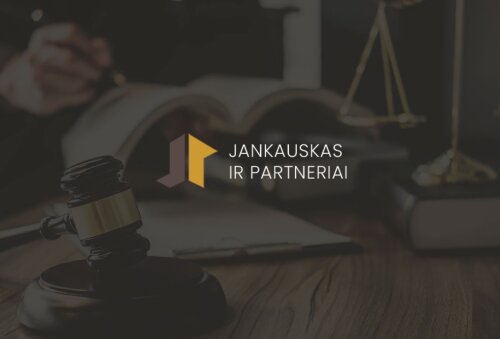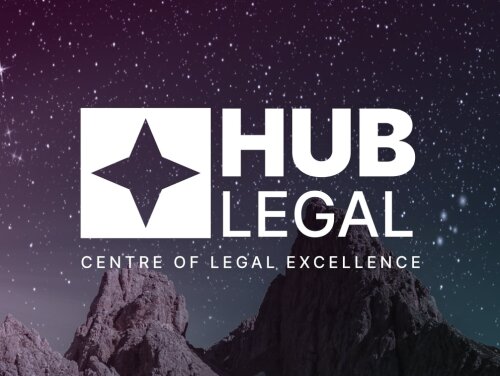Best Water Law Lawyers in Republic of Lithuania
Share your needs with us, get contacted by law firms.
Free. Takes 2 min.
Or refine your search by selecting a city:
List of the best lawyers in Republic of Lithuania
About Water Law in Republic of Lithuania
Water Law in the Republic of Lithuania refers to the legal framework that regulates the use, protection, and management of water resources within the country. It encompasses a range of legislative acts, with the principal legislation being the Law on Water, supported by various government resolutions, environmental codes, and relevant European Union directives. The Water Law aims to ensure the rational and sustainable use of surface and groundwater, prevent water pollution, protect aquatic ecosystems, and regulate water supply and wastewater management. Both individuals and organizations must adhere to these laws when accessing or using water resources.
Why You May Need a Lawyer
There are several situations in which individuals or businesses might need legal assistance regarding Water Law in Lithuania. Common reasons include:
- Seeking permits or licenses for water use, such as irrigation, industrial processes, or agriculture
- Disputes over water usage rights or boundaries with neighbors or local authorities
- Environmental damage claims, including pollution or contamination of water bodies
- Compliance with regulatory requirements for wastewater treatment or discharge
- Issues concerning construction near lakes, rivers, or groundwater sources
- Facing administrative or criminal investigations for alleged violations of water regulations
- Negotiating contracts involving the purchase, sale, or lease of water rights
Local Laws Overview
In Lithuania, the principal legal act governing water is the Law on Water, which implements both national policies and European Union directives such as the Water Framework Directive. Here are some key aspects of Lithuanian Water Law:
- All significant bodies of water, including surface and groundwater, are considered national property and are managed as public assets.
- Permits or licenses are required for most uses of water resources beyond personal or household consumption.
- The Law prescribes special rules for activities near protective water zones, shorelines, and surrounding land to prevent pollution and maintain ecosystems.
- Strict liability is enforced for environmental damage caused by pollution or unauthorized alteration of water bodies.
- Coordination between municipal authorities, the Environmental Protection Agency, and other governmental bodies ensure local enforcement and dispute resolution.
- Water management is integrated with land use planning, environmental protection, and public health regulations.
- EU legislation influences national standards, particularly about water quality, infrastructure, and conservation measures.
Frequently Asked Questions
What is considered a water resource under Lithuanian law?
Water resources include all surface water (rivers, lakes, ponds) and groundwater, regardless of whether they are naturally occurring or artificially created.
Do I need a permit to drill a well or use groundwater?
Yes, drilling a well or using groundwater for anything beyond household purposes typically requires a permit from the relevant authorities.
Who grants water use permits in Lithuania?
Permits are usually granted by regional environmental protection departments or the Environmental Protection Agency, depending on the scale and nature of the intended water use.
Are there restrictions on building near lakes or rivers?
Construction near lakes, rivers, and other water bodies is tightly regulated. Protective zones apply, and special permits may be needed to ensure projects do not harm water quality or ecosystems.
How is water pollution regulated?
Water pollution is regulated by strict legal standards. Unauthorized discharges or activities that result in the contamination of water resources are subject to administrative or criminal penalties.
What can I do if a neighbor is polluting a shared water source?
You can report the issue to your local municipality or the Environmental Protection Agency. Legal action may also be possible if pollution affects your rights or causes environmental harm.
Are water rights transferable in Lithuania?
In general, water use rights are linked to specific permits and are not freely transferable. Any change in use or user must be approved by the issuing authority.
How is water quality monitored?
The Environmental Protection Agency and other state institutions regularly monitor water quality in surface and groundwater bodies, ensuring compliance with national and EU standards.
What penalties can result from violating Water Law?
Penalties for violations can include fines, orders to restore damaged environments, suspension or revocation of permits, and in severe cases, criminal liability.
How can I challenge a decision made by a water authority?
You can file an appeal with the administrative courts if you believe a decision regarding water use, permits, or enforcement is unlawful or unjustified. A lawyer can assist in preparing and presenting your case.
Additional Resources
If you need further information or guidance regarding Water Law in Lithuania, consider contacting the following resources:
- Environmental Protection Agency (Aplinkos apsaugos agentūra) - National body overseeing water management and environmental monitoring
- Ministry of Environment of the Republic of Lithuania (Aplinkos ministerija) - Responsible for policy-making and regulation
- Regional Environmental Protection Departments (Regioniniai aplinkos apsaugos departamentai) - Local offices handling permits and enforcement
- Lithuanian Bar Association (Lietuvos advokatūra) - For legal referrals to specialists in environmental and water law
- Municipal Environmental Protection Divisions - For community-level issues and disputes
Next Steps
If you believe you need legal assistance regarding Water Law in the Republic of Lithuania, start by gathering all relevant documents regarding your water use, permits, or dispute. Consider reaching out to a lawyer who specializes in environmental or water law for a consultation. Many legal professionals offer initial advice that can clarify your rights and obligations.
You can also contact government agencies listed above for guidance on permits, compliance, or reporting violations. Be prepared to provide detailed information about your situation. Taking prompt, informed action can help you resolve issues efficiently and avoid potential legal or financial consequences.
Remember, Water Law can be complex due to overlapping national and EU regulations. Professional legal advice is often essential to protect your interests and ensure compliance with all applicable laws.
Lawzana helps you find the best lawyers and law firms in Republic of Lithuania through a curated and pre-screened list of qualified legal professionals. Our platform offers rankings and detailed profiles of attorneys and law firms, allowing you to compare based on practice areas, including Water Law, experience, and client feedback.
Each profile includes a description of the firm's areas of practice, client reviews, team members and partners, year of establishment, spoken languages, office locations, contact information, social media presence, and any published articles or resources. Most firms on our platform speak English and are experienced in both local and international legal matters.
Get a quote from top-rated law firms in Republic of Lithuania — quickly, securely, and without unnecessary hassle.
Disclaimer:
The information provided on this page is for general informational purposes only and does not constitute legal advice. While we strive to ensure the accuracy and relevance of the content, legal information may change over time, and interpretations of the law can vary. You should always consult with a qualified legal professional for advice specific to your situation.
We disclaim all liability for actions taken or not taken based on the content of this page. If you believe any information is incorrect or outdated, please contact us, and we will review and update it where appropriate.
Browse water law law firms by city in Republic of Lithuania
Refine your search by selecting a city.















